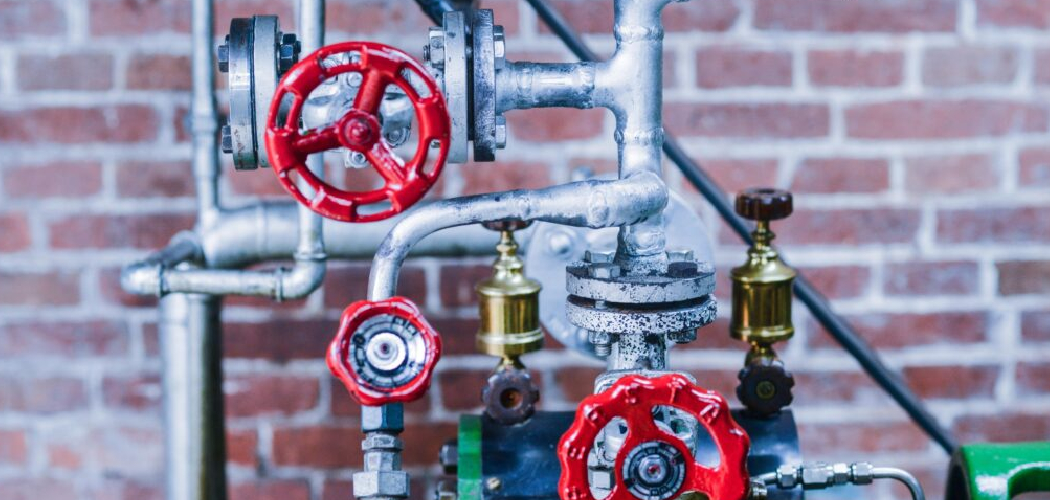Keeping sink drains clean is essential for maintaining a healthy and functional kitchen or bathroom. Clogs and unpleasant odors often stem from a build-up of grease, soap scum, hair, and food particles, leading not only to inconvenient drainage issues but also to potential plumbing problems.
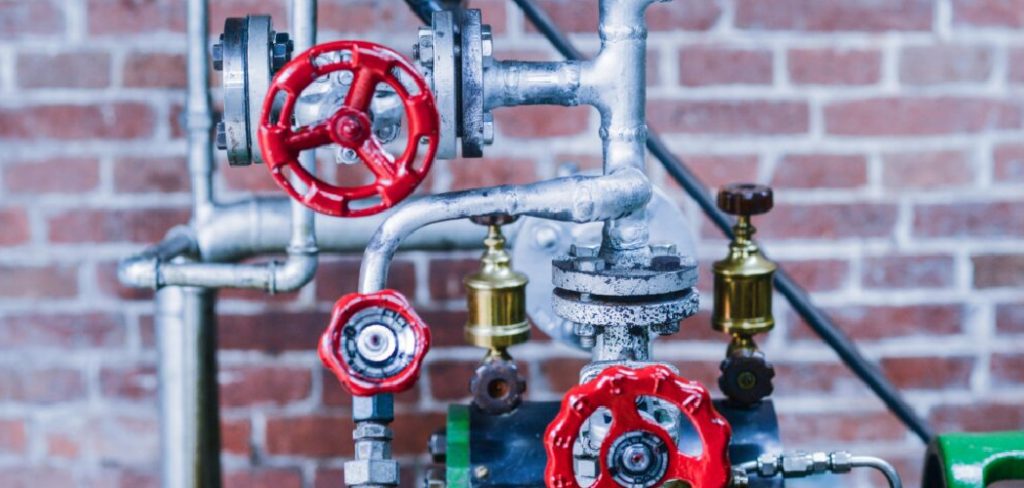
Regular maintenance can help prevent these issues, ensuring that water flows freely and that your space remains hygienic.
This guide on how to keep sink drains clean will provide effective strategies and practical tips for keeping your sink drains clean and odor-free, making it easier to enjoy a well-maintained home.
What is the Importance of Keeping Sink Drains Clean?
Having a clean and clear sink drain is important for several reasons:
Prevents Clogs:
Regularly cleaning out your sink drain can prevent clogs from forming. Clogs not only cause inconvenience, but they can also lead to more serious plumbing issues that may require professional help. By keeping your sink drain clean, you can avoid potentially costly repairs and maintain a smooth water flow.
Eliminates Odors:
A build-up of food particles, grease, and other debris can lead to unpleasant odors emanating from your sink drain. These odors not only make your kitchen or bathroom smell bad but can also attract pests. Keeping your sink drain clean helps eliminate these odors and keep your space smelling fresh.
Promotes Hygiene:
Food particles and bacteria in dirty sink drains provide an ideal breeding ground for germs, making it a health hazard for anyone using the sink. Regularly cleaning the drain helps prevent the spread of harmful bacteria and promotes a hygienic environment.
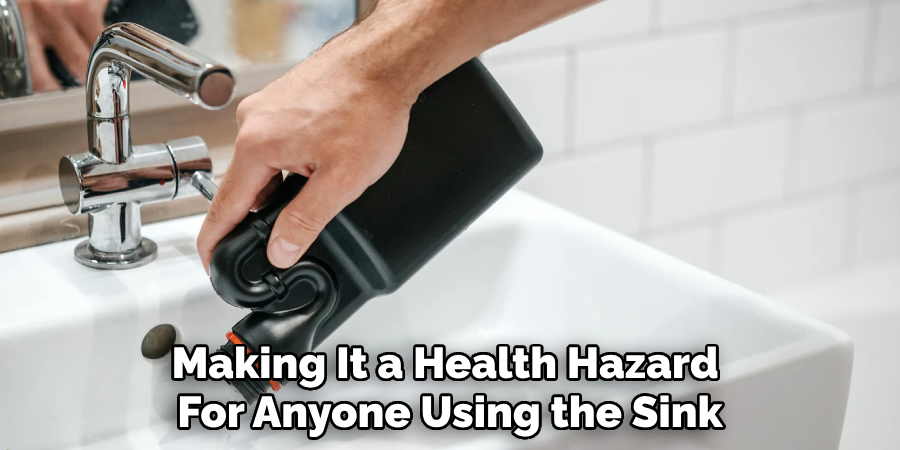
8 Step-by-step Guidelines on How to Keep Sink Drains Clean
Step 1: Use a Drain Protector
A drain protector is a simple yet effective tool for maintaining clean sink drains. By placing a mesh or perforated screen over the drain, you can catch food particles, hair, and other debris before they enter the plumbing system.
This easy-to-use accessory not only prevents clogs but also reduces the amount of buildup that can lead to unpleasant odors.
Make it a habit to clean the drain protector regularly, rinsing it under warm water to remove any trapped residue, ensuring it remains effective in keeping your sink drains clear.
Step 2: Flush with Hot Water
Flushing your sink drain with hot water is a simple yet effective way to keep it clean and free from debris.
By pouring a pot of boiling water down the drain once a week, you can help dissolve any grease or soap scum that may have accumulated. This process not only aids in breaking down potential clogs but also flushes away any lingering food particles and bacteria.
To enhance effectiveness, consider adding a cup of baking soda and a cup of vinegar to the drain before flushing with hot water. This combination creates a natural cleaning reaction that can further help clear stubborn buildup and keep your sink drains fresh.
Step 3: Use Natural Cleaners
For a more thorough weekly cleaning, consider using natural cleaners to keep your sink drains clean. Baking soda and vinegar are popular choices, but you can also use lemon juice or essential oils. These natural cleaners not only help break down any buildup but also leave a fresh scent behind.
To use, mix equal parts baking soda and vinegar or lemon juice and pour the solution down the drain. Let it sit for a few minutes before flushing with hot water.
Step 4: Avoid Pouring Grease Down the Drain
Pouring grease down the drain is one of the leading causes of clogs and drainage issues. When hot grease is poured into the sink, it may seem to flow easily at first, but as it cools, it solidifies and clings to the sides of pipes. Over time, this accumulation can lead to blockages and even damage to the plumbing system.
To prevent this, always dispose of cooking grease in a container and throw it away in the trash once it has cooled. If you’re dealing with small amounts of grease, consider wiping pans with a paper towel before washing them to remove excess grease, ensuring that your drains remain clear and functional.
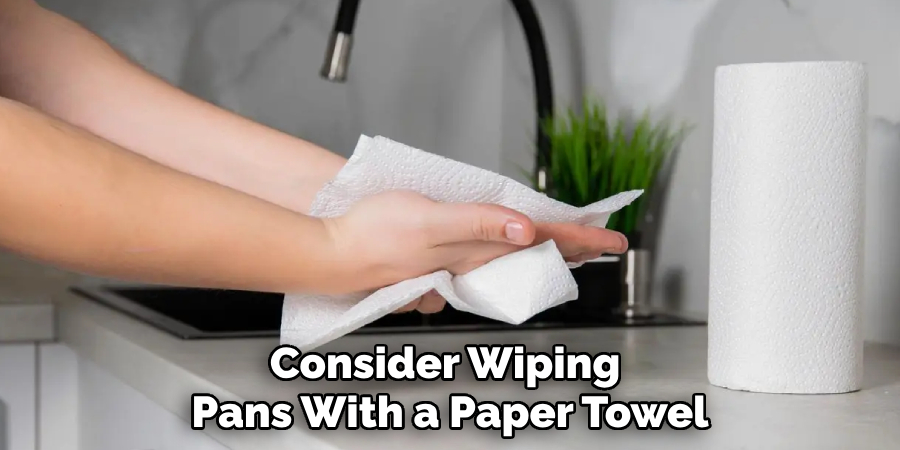
Step 5: Use a Plunger
If you notice your sink draining slowly, use a plunger to break up any clogs. Place the rubber end over the drain and apply firm pressure while pumping up and down. This motion helps create suction and dislodge any debris that may be blocking the pipes.
After plunging, flush with hot water to clear away any remaining residue.
Step 6: Try a Homemade Drain Cleaner
For stubborn clogs, consider making your own drain cleaner using household items. Mix equal parts baking soda and salt, then pour it down the drain followed by an equal amount of vinegar. Let it sit for at least an hour before flushing with hot water.
The abrasive action of the salt combined with the cleaning power of baking soda and vinegar can help dissolve tough clogs and leave your drain clean and fresh.
Step 7: Install a Garbage Disposal
Food particles are one of the main culprits behind sink drain clogs. Installing a garbage disposal can help prevent this by grinding up food before it enters the pipes, making it easier to flush through the plumbing system. This not only helps keep your sink drains clean but also reduces odors in the kitchen.
You can also add citrus peels, ice cubes, and a little baking soda to the garbage disposal to keep it clean and fresh.
Step 8: Schedule Professional Drain Cleaning
Professional drain cleaning services can help keep your sink drains in top condition. They use specialized tools and techniques to remove any buildup or clogs that may be lurking in your pipes.
Consider scheduling a professional drain cleaning service at least once a year to prevent potential plumbing problems and ensure that your sink drains remain clean and functional.
By following these tips on how to keep sink drains clean and incorporating them into your regular maintenance routine, you can effectively keep your sink drains clean, preventing potential plumbing problems and promoting a hygienic living space.

Remember, prevention is key, and regular maintenance is essential for maintaining clean and functional sink drains. So don’t neglect this important household chore and enjoy fresh-smelling sinks all year round!
Tips
- Use a mixture of equal parts vinegar and water as an all-purpose cleaner for your sink, faucet, and countertops.
- Consider using a small drain brush or pipe cleaner to remove any buildup around the edges of the sink drains.
- Avoid using chemical drain cleaners as they can be harmful to both your health and the environment. Instead, opt for natural cleaning solutions.
- Regularly clean dish cloths, sponges, and other kitchen cleaning tools that come into contact with your sink drains to prevent the spread of bacteria.
- If you notice persistent clogs or foul odors in your sink drains, seek professional help to diagnose and address any underlying plumbing issues.
Frequently Asked Questions
Q: How Often Should I Clean My Sink Drains?
A: It’s recommended to clean your sink drains at least once a week using hot water and natural cleaners. For tougher clogs or buildup, consider scheduling a professional drain cleaning service at least once a year.
Q: Can I Use Chemical Drain Cleaners?
A: While chemical drain cleaners may seem like an easy fix, they can actually do more harm than good. These harsh chemicals can damage pipes and are not environmentally friendly. It’s best to stick to natural cleaning methods or seek professional help if needed.
Q: What Causes Sink Drains to Smell?
A: Clogs, buildup, and bacteria are the main culprits behind foul smells coming from sink drains. By regularly keeping your sink drains clean and using natural cleaners, you can prevent these issues and keep your sinks smelling fresh.
Q: Are There Any Benefits to Keeping Sink Drains Clean?
A: Yes, there are several benefits to keeping sink drains clean. It can prevent potential plumbing problems, reduce foul odors, promote a hygienic living space, and save you money on costly repairs in the long run. So don’t neglect this important household chore and make it a part of your regular cleaning routine to enjoy these benefits.
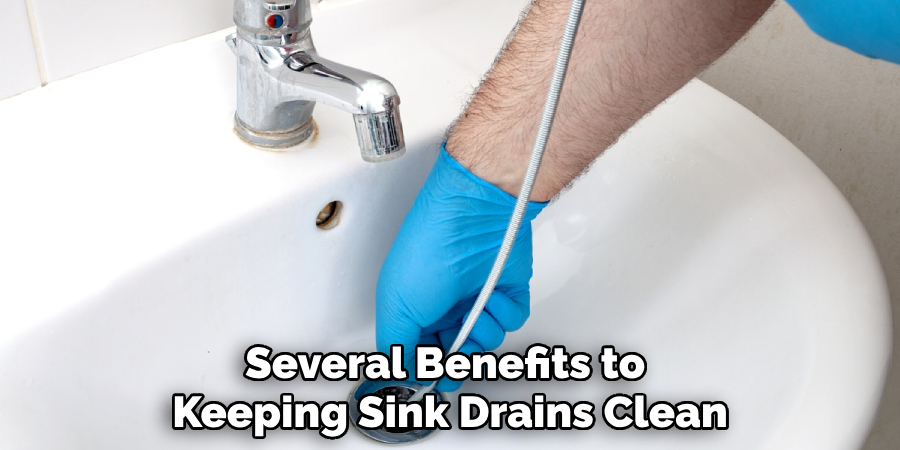
Conclusion
Proper maintenance and regular cleaning are crucial for keeping sink drains clean and functional. By following these tips on how to keep sink drains clean and incorporating them into your cleaning routine, you can prevent clogs, buildup, and foul odors, ensuring that your sink drains remain clean and fresh.
Remember to avoid pouring grease down the drain, use natural cleaners, and consider professional cleaning services for deep cleaning.
With these practices in place, you can have peace of mind knowing that your sink drains are in top condition. So don’t wait until a clog or odor becomes a problem before taking action – start incorporating these tips today for a cleaner and healthier household!

